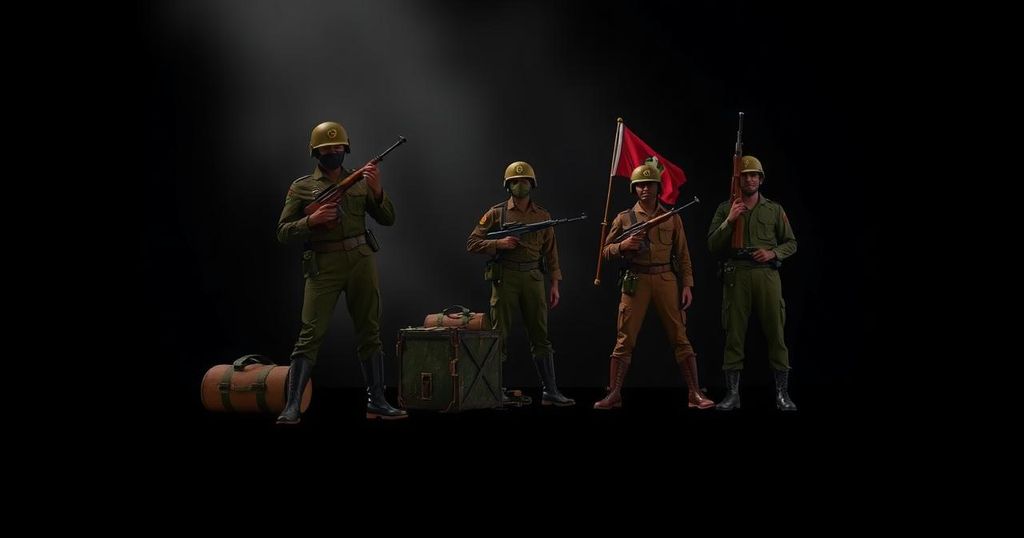A study by Dutch institutes reveals that the Dutch government tolerated severe violence perpetrated by its soldiers during Indonesia’s independence struggle between 1945 and 1949. This includes extrajudicial killings, torture, and sexual violence against civilians. Key figures emphasize the need for the Netherlands to accept responsibility for these historical abuses, which remain a crucial aspect of Dutch-Indonesian relations and discussions on colonialism.
A recent study conducted by a collaborative effort of The Royal Netherlands Institute of Southeast Asian and Caribbean Studies (KITLV), the Netherlands Institute of Military History (NIMH), and the Institute of War, Holocaust, and Genocide (NIOD) reveals that the Dutch government tolerated widespread acts of violence committed by its soldiers during Indonesia’s struggle for independence from 1945 to 1949. Researchers reported that Dutch troops engaged in extrajudicial killings, torture, murder, and sexual violence, exploiting the civilian population amidst their colonial ambitions. The study emphasized the systematic nature of these violations and criticized the lack of accountability within the Dutch military and judicial systems. Jeffry Pondaag, chairman of the Committee of Dutch Honorary Debts (KUKB), commented on the findings, stating that the failure of the Dutch government to acknowledge its historical responsibility hampers meaningful understanding of the conflict. He noted, “Wherever the two sides fight, there is mutual violence and accusations. But only the responsibility of the Netherlands is mentioned here.” This statement underscores the complexities and biases present in historical narratives surrounding colonial conflicts. Indonesia declared its independence from the Dutch Empire on August 17, 1945, which the Netherlands rejected by deploying military forces to reassert colonial control. The violent clash resulted in significant atrocities against civilians, culminating in the eventual recognition of Indonesia’s sovereignty by the Dutch on December 27, 1949. These revelations contribute to the ongoing conversation about colonialism, historical memory, and the necessity of accountability for past injustices. The Dutch actions during this conflict represent a critical area of study for historians and post-colonial theorists alike, as they seek to illuminate the impacts of colonial rule and the struggle for self-determination in Indonesia.
The backdrop of this study is rooted in Indonesia’s fight for independence from Dutch colonial rule. Indonesia declared independence on August 17, 1945, following World War II, but the Netherlands refused to acknowledge this declaration and dispatched troops to regain control. This situation led to significant violence, with Dutch soldiers reportedly committing numerous war crimes against the Indonesian population during the conflict, which lasted until the Dutch formally recognized Indonesian independence in 1949. The implications of this colonial history continue to resonate in discussions regarding national identity, historical accountability, and post-colonial justice.
In conclusion, the findings of the research conducted by various Dutch institutes reveal a troubling pattern of violence tolerated by the Dutch government during the Indonesian independence war. The study highlights the extensive human rights abuses committed by Dutch soldiers and raises critical questions regarding accountability and historical memory. Understanding these events is essential for acknowledging the past and addressing the legacies of colonialism in contemporary society.
Original Source: www.aa.com.tr






